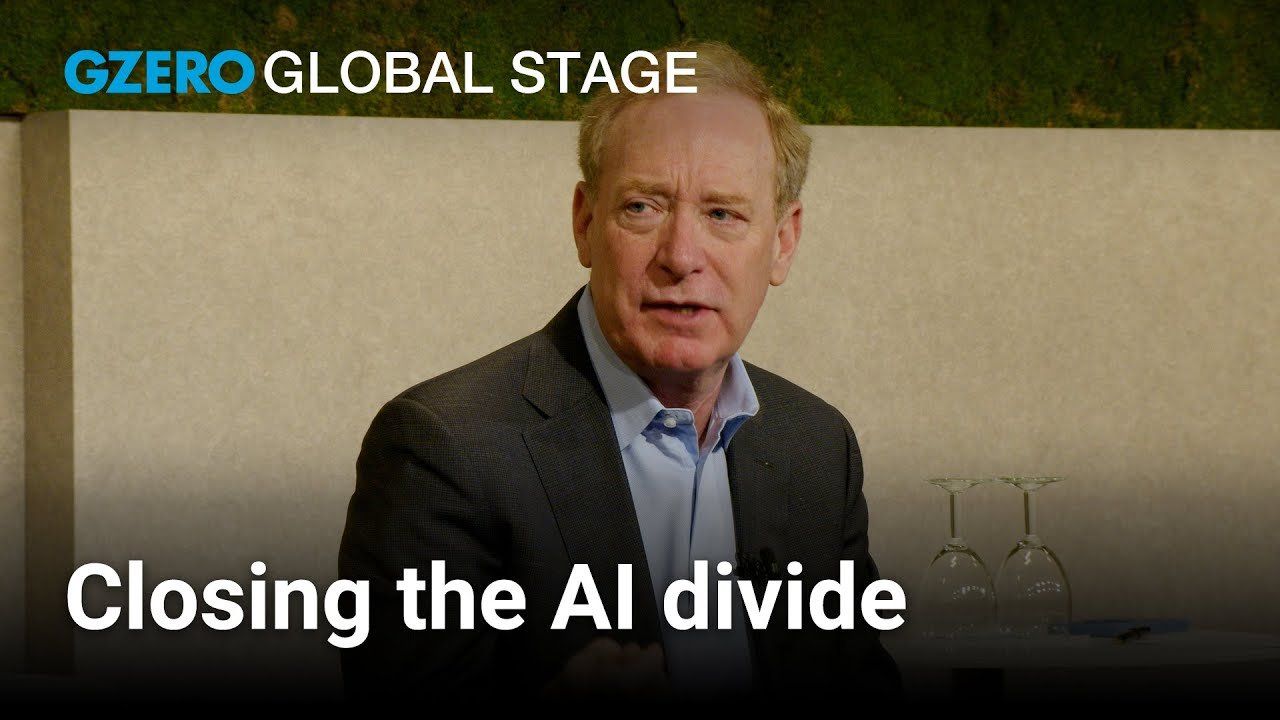Digital Governance
AI for all: Leave no one behind, says Microsoft's Brad Smith

AI for all: Leave no one behind, says Microsoft's Brad Smith | Global Stage

Artificial intelligence could level the playing field for individuals across an array of disciplines...if people have access to it. Microsoft’s Vice Chair and President Brad Smith, points out that access to AI tech remains a privilege that is still unavailable to hundreds of millions around the world.
Speaking in a GZERO Global Stage discussion from the 2024 World Economic Forum in Davos, Switzerland, Microsoft Vice Chair and President Brad Smith points out that while the conversation about AI seems advanced in Davos, a lot of people in the Global South don't yet have access to AI, let alone basic needs like electricity, access to electronic devices, and internet connectivity.
“In a sense, we do the Global South a tremendous disservice if we talk about AI all the time as the next thing,” he said. First, "close the electricity divide, the broadband connectivity divide, the device divide, and then you can close the AI divide on top of it."
The conversation was part of the Global Stage series, produced by GZERO in partnership with Microsoft. These discussions convene heads of state, business leaders, technology experts from around the world for critical debate about the geopolitical and technology trends shaping our world.
“For India, AI stands for all inclusive,” reads the billboard outside this week’s AI Impact Summit in New Delhi organized by the Indian government, the first major gathering on the subject in the Global South.
Think you know what's going on around the world? Here's your chance to prove it.
2.5 million: The population of Gabon who can no longer get onto certain social media platforms, like YouTube and TikTok, after the government suspended access on Tuesday.
In this episode of "ask ian," Ian Bremmer breaks down two high-stakes negotiations in Geneva: Russia-Ukraine and indirect US-Iran talks, calling both “underwhelming” with little progress.